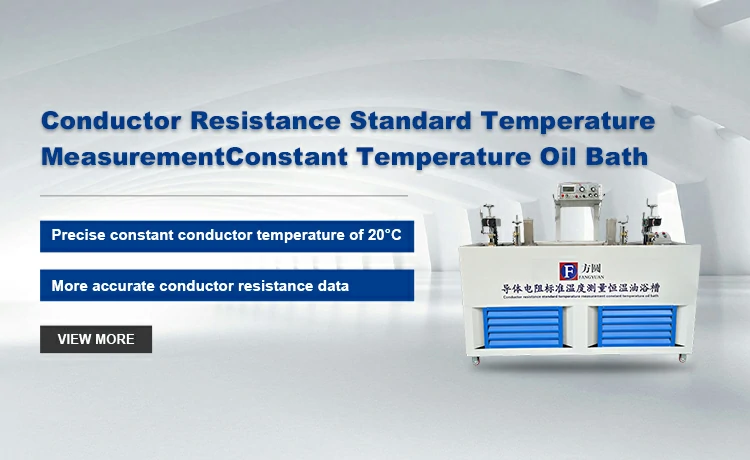Top Suppliers of Insulation Resistance Testing Equipment for Reliable Electrical Measurements
Understanding Insulation Resistance Testers A Guide for Buyers
Insulation resistance testers are essential tools used in various fields, primarily electrical engineering and maintenance, to ensure the safety and reliability of electrical installations. These instruments measure the resistance of electrical insulation, which is critical for preventing electrical leaks, short circuits, and potential accidents. If you are in the market for an insulation resistance tester, understanding the product's features and the suppliers in this arena can help you make an informed purchase.
What is an Insulation Resistance Tester?
An insulation resistance tester, also known as an insulation tester, is designed to apply a high voltage to a piece of electrical equipment and measure the resulting current flow. The resistance is calculated using Ohm’s law, which states that resistance equals voltage divided by current (R = V/I). The tests help verify the integrity of electrically isolated systems, such as appliances, cables, and motor windings.
Most insulation resistance testers offer various voltage settings, typically ranging from 250V to 1000V, allowing users to perform tests on a wide range of electrical devices. A higher insulation resistance is indicative of good insulation, implying that very little current can leak through. In most cases, a resistance value of 1 megohm or higher implies satisfactory insulation quality, but this can depend on specific industry standards.
Importance of Insulation Resistance Testing
Regular insulation resistance testing is crucial for maintaining electrical safety and preventing equipment failures. Here are some reasons why insulation resistance testing is important
1. Prevent Electrical Hazards Regular testing helps identify insulation degradation, which can lead to electrical shocks and fire hazards. 2. Enhance Equipment Longevity By identifying insulation issues early, you can address problems before they cause significant damage, thus extending the life of electrical equipment. 3. Compliance with Safety Standards Many industries are required to adhere to safety protocols. Regular insulation testing can ensure compliance with local regulations and standards. 4. Cost Efficiency Detecting insulation failures early can prevent costly repairs and downtime, making it a prudent investment.
Factors to Consider When Choosing Suppliers
When selecting a supplier for insulation resistance testers, consider the following factors
insulation resistance tester suppliers

1. Product Range Look for suppliers that offer a broad range of insulation testers. Some testers come with additional functionalities, such as Earth ground testing and continuity testing. It's beneficial to choose a supplier that provides various models to suit different testing requirements.
2. Quality and Reliability The durability and accuracy of the tester are vital. Research brands and manufacturers known for their quality products. Customer reviews and industry ratings can help gauge the reliability of a supplier’s offerings.
3. Certification and Standards Ensure that the insulation resistance testers meet relevant industry standards (like IEC, UL, or ANSI). This guarantees that the products are safe and effective for use in critical applications.
4. Technical Support A good supplier should provide excellent after-sales support, including manuals, warranty, and customer service assistance. This can be particularly valuable if you encounter issues or have questions about using the tester.
5. Pricing and Value While cost is important, it should not be the only deciding factor. Evaluate the overall value by considering the features, reliability, and warranty offered alongside the price.
Popular Suppliers in the Market
Some well-known suppliers of insulation resistance testers include
- Fluke Corporation Renowned for their precision measuring tools, Fluke offers a range of insulation testers that are reliable and user-friendly. - Megger A pioneer in electrical test equipment, Megger provides various insulation testers for both professional and industrial use. - Klein Tools Known for ruggedness and quality, Klein offers versatile tools including effective insulation resistance testers.
Conclusion
Choosing the right insulation resistance tester and supplier is fundamental for ensuring electrical safety and compliance. By considering the factors outlined above and opting for reputable suppliers, you can equip yourself with reliable testing equipment that will enhance your electrical maintenance routines. Regular testing not only abides by safety standards but also contributes to the extended lifespan of your electrical systems. Whether you are in the electrical construction field, maintenance, or any related industry, investing in a quality insulation resistance tester is a decision that ensures safety and efficiency.
-
Why the Conductor Resistance Constant Temperature Measurement Machine Redefines Precision
NewsJun.20,2025
-
Reliable Testing Starts Here: Why the High Insulation Resistance Measuring Instrument Is a Must-Have
NewsJun.20,2025
-
Flexible Cable Flexing Test Equipment: The Precision Standard for Cable Durability and Performance Testing
NewsJun.20,2025
-
Digital Measurement Projector: Precision Visualization for Modern Manufacturing
NewsJun.20,2025
-
Computer Control Electronic Tensile Tester: Precision and Power for the Modern Metal Industry
NewsJun.20,2025
-
Cable Spark Tester: Your Ultimate Insulation Assurance for Wire and Cable Testing
NewsJun.20,2025
 Copyright © 2025 Hebei Fangyuan Instrument & Equipment Co.,Ltd. All Rights Reserved. Sitemap | Privacy Policy
Copyright © 2025 Hebei Fangyuan Instrument & Equipment Co.,Ltd. All Rights Reserved. Sitemap | Privacy Policy
